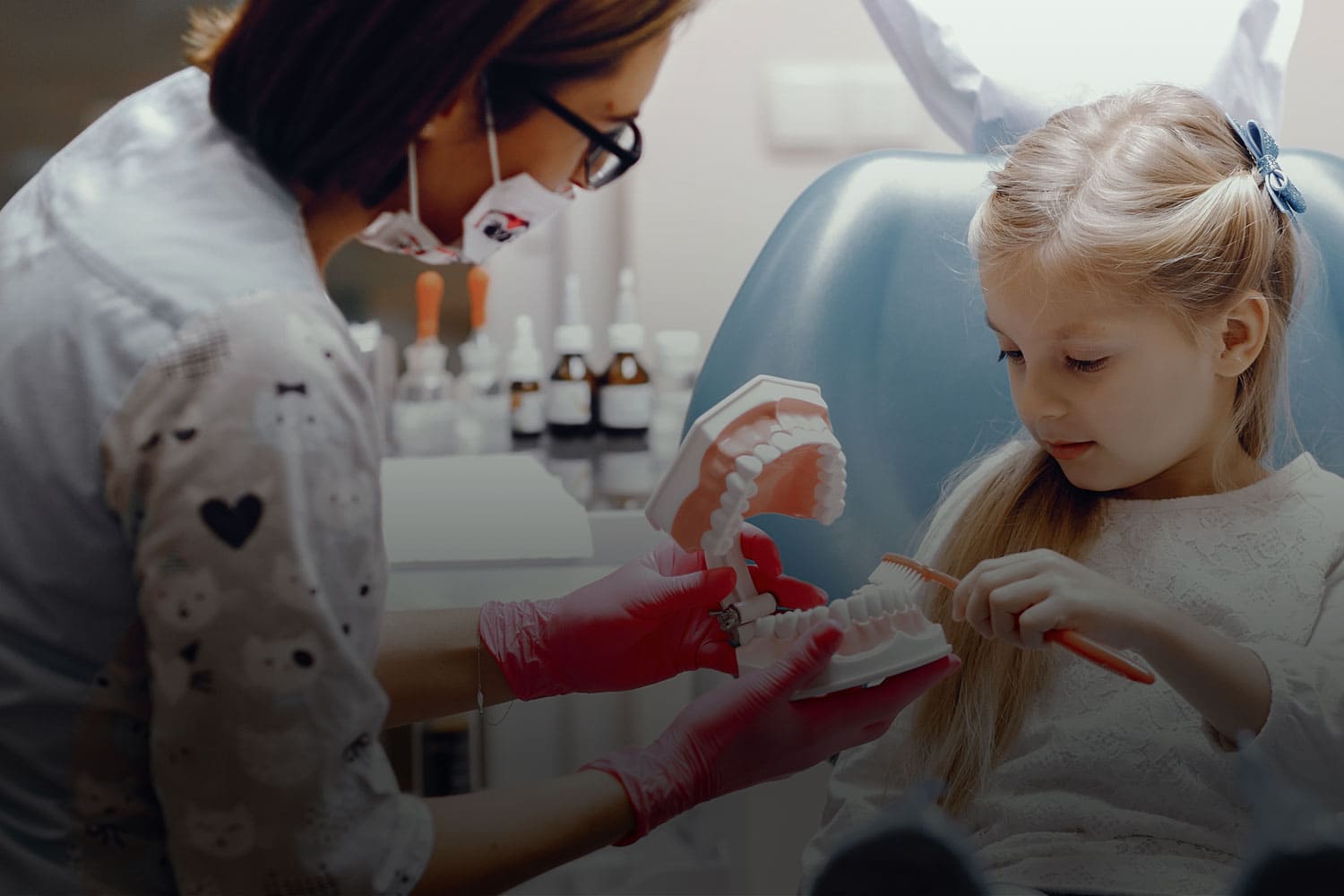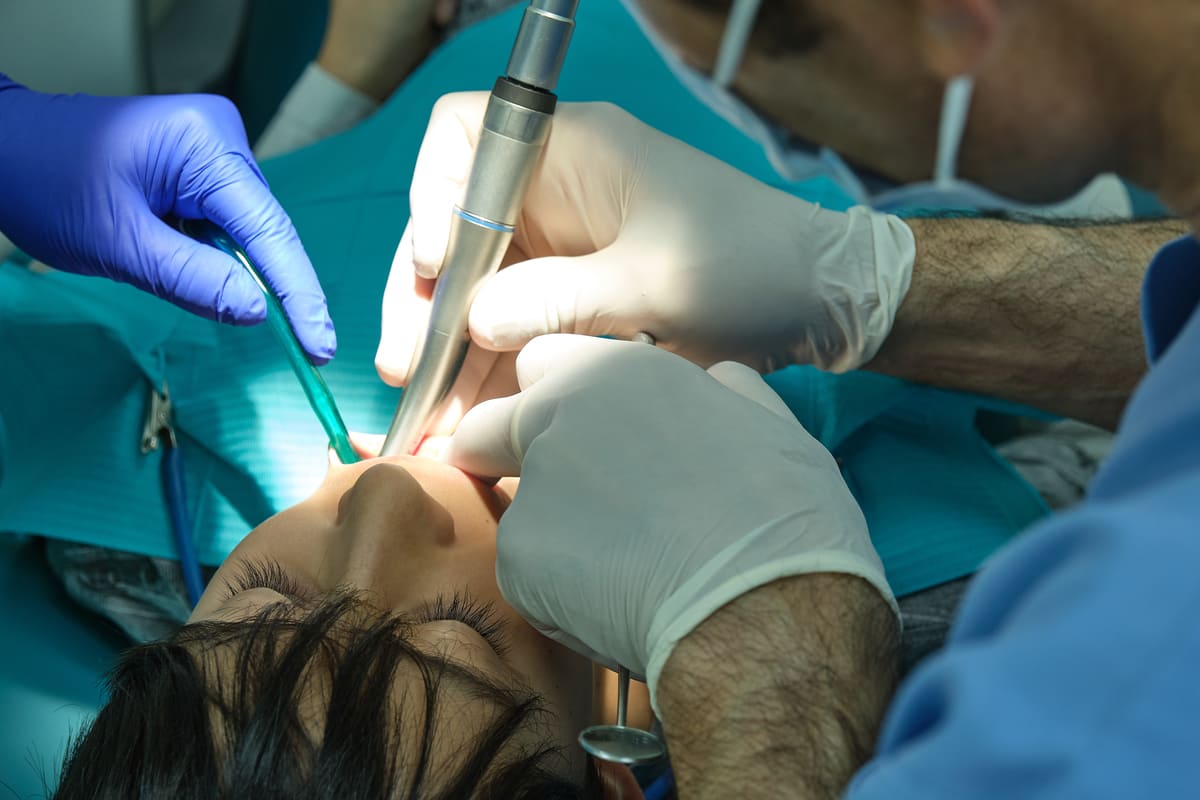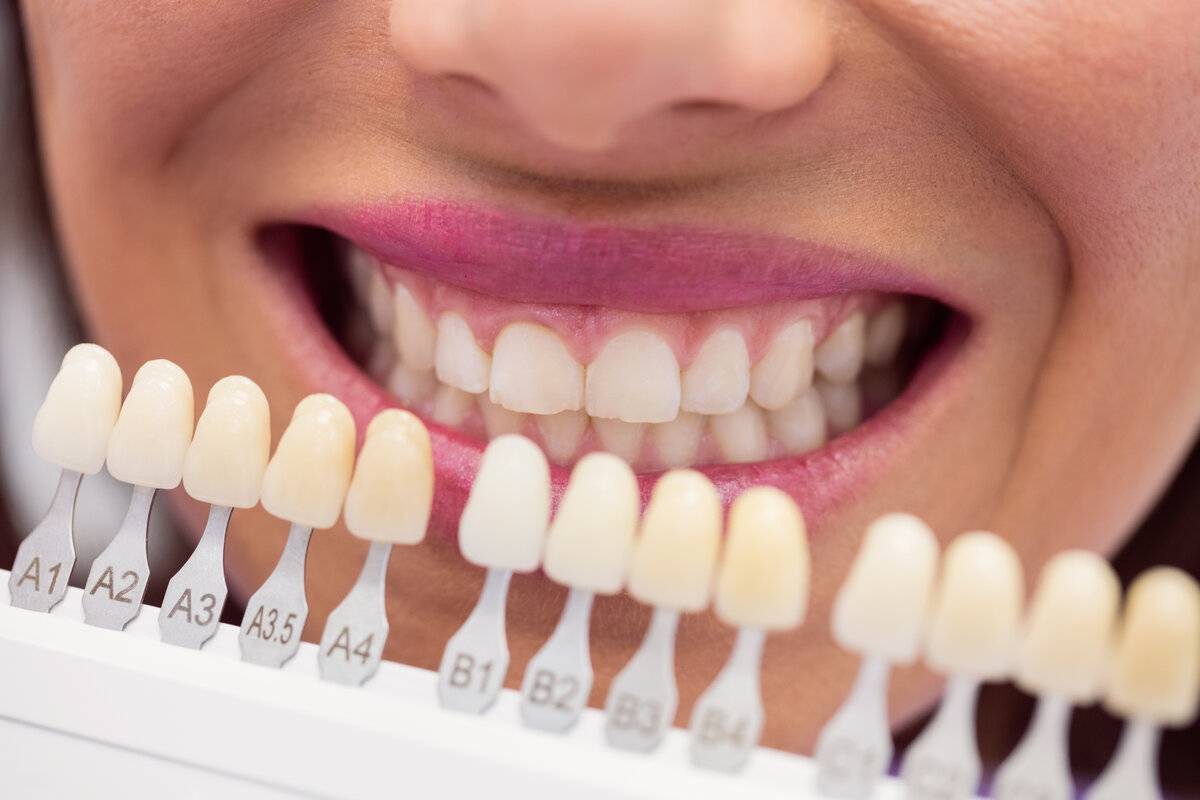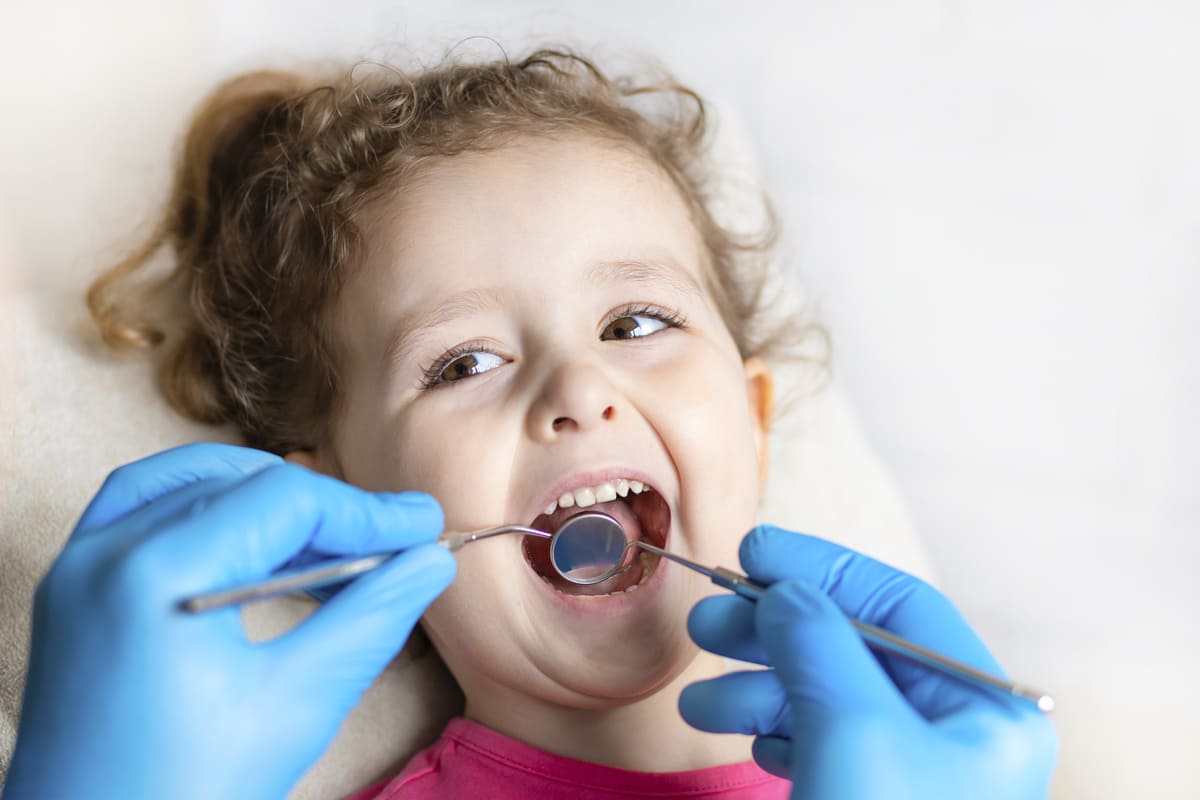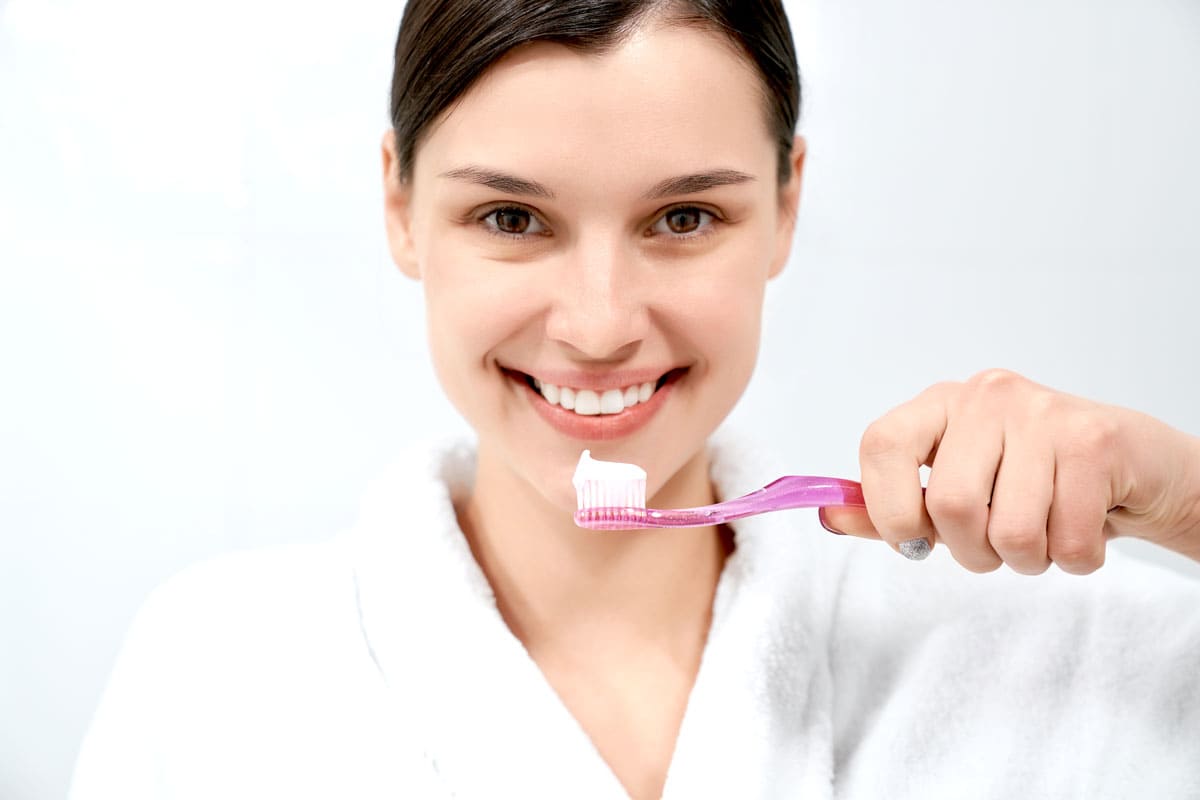There are doubts about the right age to take children to the dentist. For many years, the first visit to the dentist for children has been delayed due to fear of the experience and a lack of knowledge about possible infections or illnesses prior to the baby teeth. In this article we reveal . when to go to the dentist with your child, the recommended guidelines and the necessary tips for a more fun and pleasant experience.
The first visit to the dentist, when and how?
The ideal is always prevention. Dentists recommend that children make their first visit to the dentist when they are 1 year old or when their first tooth appears. Although children develop their first teeth (milk teeth) at the age of 3, studies have shown the presence of caries in children under the age of 4. Therefore, it is advisable to instil proper oral hygiene and detect possible pathologies from an early age.
What will your child’s first visit to the dentist consist of?
The paediatric dentist will carry out an oral examination to check the position of the teeth, detect growth disorders, baby bottle tooth decay, possible trauma and periodontal conditions. In addition, during this first visit to the dentist, parents can learn about the necessary guidelines and recommendations to practice at home and facilitate their child’s oral hygiene, such as when to take away the dummy, healthy eating habits, etc.
Tips to make your child’s experience a positive one
Dentists for children (and for adults) are the most feared in the health sector. For this reason, it is essential to choose professionals who are empathetic and know how to reduce the stress and anxiety caused by the first dental consultation. In addition, parents at home can also prepare the situation to favour a positive experience at the clinic:
Choose an appointment time when your child is usually rested.
Tiredness is the great enemy of attitude. Bringing your child to the appointment rested, motivated and cheerful will generate a good memory of the experience and facilitate communication and the work of the paediatric dentist.
Avoid heavy meals before the appointment
It is important that your child is well and comfortable at the time of the oral examination. It is therefore advisable to avoid heavy meals that may make digestion difficult and make them feel uneasy and restless.
Avoid giving him snacks
In any case, and regardless of your child’s visit to the dentist, snacks, milkshakes, pastries or sweets should be avoided as a reward or entertainment because of their high sugar and saturated fat content. It is advisable to establish healthy eating habits and normalise the consumption of real food.
Brushed teeth
To facilitate the examination of the child, the child should be presented with brushed teeth and proper oral hygiene. In this way, the professional will be able to carry out a proper and more thorough examination.
Work with the dentist to calm the child if necessary.
If the child has an episode of stress or anxiety during a visit to the paediatric dentist, there is no one better than the parents to help the child regain the confidence and security that he/she needs at that moment.
Some tips to avoid fear of the dentist in children
The first visit to the dentist can set a precedent for subsequent visits, depending on the experience. For this reason, it is ideal to create a pleasant and completely normal atmosphere when taking the child to the dentist. How can we do this?
Create the habit of oral hygiene as early as possible
It is important to familiarise your child with toothbrushing and oral hygiene. Many parents believe that baby teeth do not require care because they will be replaced by the final teeth, however, making the child responsible for maintaining daily hygiene will not only help to create the habit but will also help to prevent infections and diseases. Let’s not forget that the baby teeth are the ones that give way to the permanent teeth and that the better this place is, the better these teeth will be.
Explain to them that visits to the dentist are good for their health and wellbeing
Communication and information are essential to generate security and confidence in their visit to the dentist for children. Helping them understand that this visit is good for their health and wellbeing is the first step to a positive experience.
Never threaten to take your child to the dentist
Threatening to take little ones to the dentist only guarantees that they will dread it. That’s why you should be especially careful about which phrases you use to give them a warning about their misbehaviour. Sooner rather than later, you will have to go back to the dentist and it is important that this situation does not cause fear.
Avoid commenting on negative experiences in front of the child
Children are sponges for everything that happens and what they hear around them. If they discover that their peers have had negative experiences at the dentist, it is very likely that they will associate that experience as their own when the time comes for them to go to the dental clinic.
Treat dental visits as a matter of course. Avoid preaching to your child with both positive and negative comments
A normal situation does not involve prevention or prior motivation, so visits to the dentist should be treated as a matter of course by parents. Where do we go? To your dentist.
When should I go back? The importance of regular dental check-ups
Once we have resolved the question of at what age to take a child to the dentist, we still have to decide when it is advisable for them to return. Dentists recommend that they visit the dental clinic at least once a year, with a check-up every 6 months being recommended. This increases the possibility of prevention and detection, so that, if treatment is needed, it will be much simpler and easier to bear.
Summary
At Medident we have the best experts in paediatric dentistry. We are a team of specialised professionals with the ability to ensure that your children have a pleasant and fun experience during their visit to our clinic. Contact us without obligation for an initial consultation

